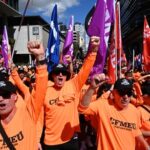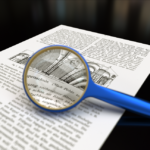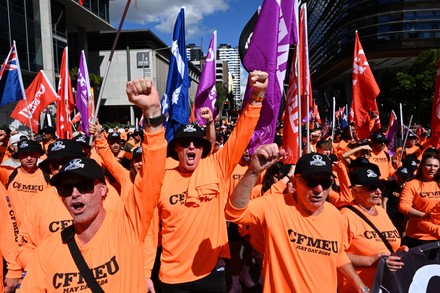“Dozens of hours of phone calls and months of communication between journalists and the chair of an inquiry into the ACT’s former top prosecutor are being relied upon in court to argue inquiry head was biased“.
So, former director of public prosecution Shane Drumgold is pursuing legal action against former Queensland Court of Appeal judge Walter Sofronoff over Sofronoff’s findings in an inquiry about how the prosecution of Bruce Lehrman was handled. No big deal.
If Drumgold really wanted information that could incriminate Sofronoff and destroy his credibility as an impartial finder of fact, he could have gone online and surfed the Dark Web where hacked files, personal and professional communications, and evidence concealed and withheld from courts at hearings can be found.
There have been numerous breaches of security through hacks of servers in the legal precincts of Brisbane, Sydney, Melbourne and via them other major cities of Australia.
The servers of the Supreme courts of Queensland and New South Wales have been hacked on several several occasions since 2019. And material downloaded from these servers have been published online in various forums. There is nothing really novel about O’Gorman’s discovery about Walter Sofronoff’s extra curricular, extra juridical activities in this regard.
Surfing the Dark web is an art. It may be unlawful in Australia. However it isn’t unlawful in several countries where hacking is an industry and its results published on the worldwide web.
Hackers throughout the world often publish their handiwork on the Dark web briefly for sampling purposes then withdraw it for the bidding to start.
There are others who make a living out of downloading what the Dark web publishes before the material is withdrawn. In any event, evidence obtained from hackers usually considered to have been illegally obtained, is not necessarily inadmissible as evidence. It is subject to certain criteria before it is admissible as evidence in legal proceedings. Relevance being the most important of these criteria .
“A fair and independent judicial branch is a cornerstone of our democratic system of government. An independent judicial branch is not an end in itself, but a means of ensuring the rule of law, since only by being free from outside influences can judges decide cases on the law and facts alone “.
Mr. Sofronoff was in constant communication with journalist Janet Albrechtsen before and during his inquiry, according to Dan O’Gorman the lawyer representing Drumgold.
Mr. Sofronoff is said to have made 65 phone calls to journalists between February and July 2023, totaling almost 10 hours of call time according to phone records.
Of these, 55 were to people from The Australian – predominantly Ms. Albrechtsen. Lawyers in Queensland and NSW are known to frequently make hours of phone calls to ‘friendly judges‘ who once shared chambers with them or once shared a school with them in a previous incarnation. It is not uncommon for them to meet up with judges regularly (for a cuppa) and to discuss their clients, witnesses and exchange information about their opponents. Passing on sensitive material between them is not uncommon either.
They are also known to have shared critical information on cases before the courts over which they preside to lawyers appearing for one side or the other in cases and have done so with relative impunity and ease.
The courts and the Legal Services Commissions in each of the Australian states have no real interest in such matters anymore. Not that they’ve ever had an interest in pursuing such matters before.
The point Mr. O’Gorman was trying to make to the court (and a valid one at that) is to prove Sofronoff had an apprehended bias against Mr. Drumgold. The point is this. Judges have discretion to exclude certain types of evidence. Section 136 of the uniform Evidence Acts provides the trial judge with a discretion in both civil and criminal proceedings to limit the use to be made of evidence if there is a danger that a particular use of the evidence might be unfairly prejudicial to a party or misleading or confusing to the tribunal of fact.
Confidential documents – including the draft report – were handed to journalists that shouldn’t have been, Mr. O’Gorman said. In the Queensland, New South Wales and Victorian courts there is ample evidence that judges applying their own personal views and biases exclude the most critical and relevant evidence based on personal moral beliefs and yes, their undisclosed personal ties to witnesses, social activists and lawyers. There is also evidence that they entertain confidential information from lawyers in matters before them without disclosing the breach to an open court.
“Ms. Albrechtsen received confidential information relating to the inquiry and Mr. Sofronoff’s terms of inquiry,” O’Gorman complained. But does that necessary prove that Sofronoff provided that information to Ms. Albrechtsen?
The rest of the assumptions made by O’Gorman is speculative sanctimonious hogwash trying to make 2 and 2 into 22.
Mr Sofronoff’s review of Mr Drumgold’s prosecution of Mr Lehrmann found O’Gorman’s client had lost his objectivity and lied to the chief justice. And that by any measure of the yardstick is indisputable.
THE UNSPOKEN RULE AND COMMON PRACTICE AT THE BENCH AND BAR
Sofronoff is not alone in breaching the doctrine of independence of the judiciary. Most judges are guilty of cavorting with prominent lawyers and socialites. It is not uncommon that they cross that line in the course of their professional lives as many have done historically an in recent times.
What is needed today is a Royal Commission into the conduct of the legal profession and its members which include judges. There is no separation of powers in reality. There is a doctrine of the separation of powers which in truth is recognized more often in its breach than for its observance.
No one in the profession, not even in government is prepared to call out that “the king is naked” for fear of retribution from the legal profession, the judiciary and the statutory bodies that are meant to oversee their conduct.
Sofronoff was merely exploiting a well worn path of breaching confidentiality and privilege which is a staple amongst the judiciary and prominent lawyers in Australia.
Stepan Goran












